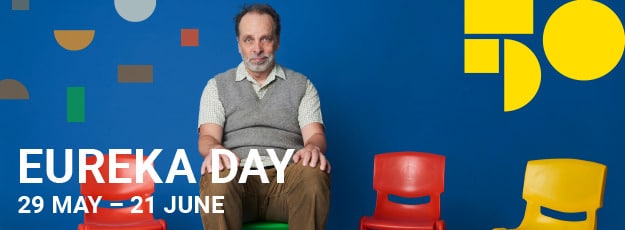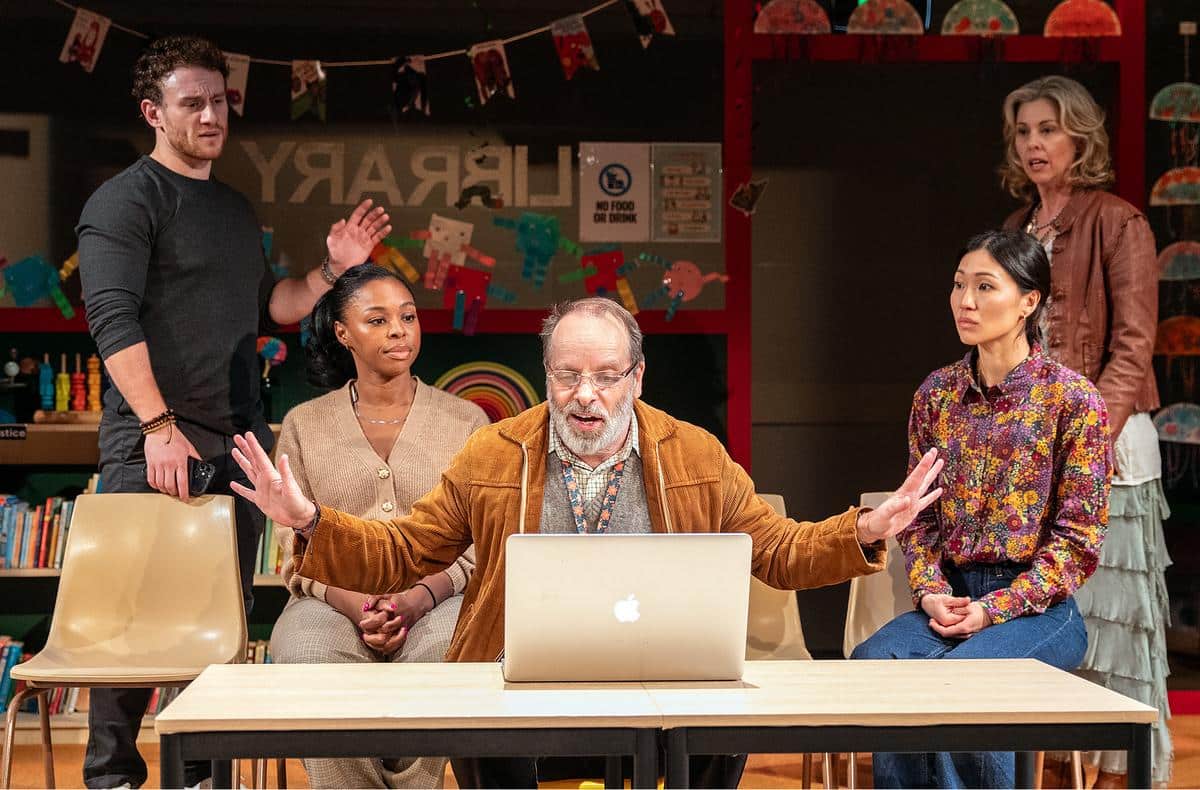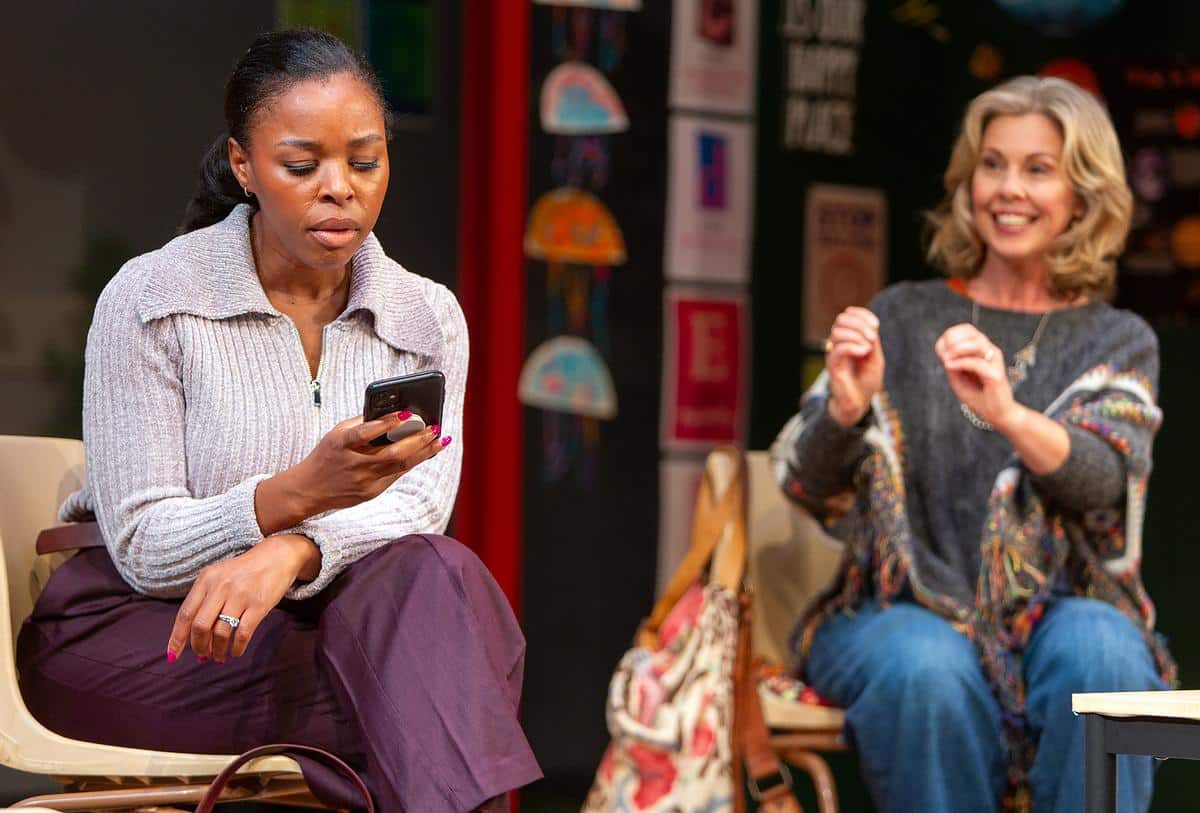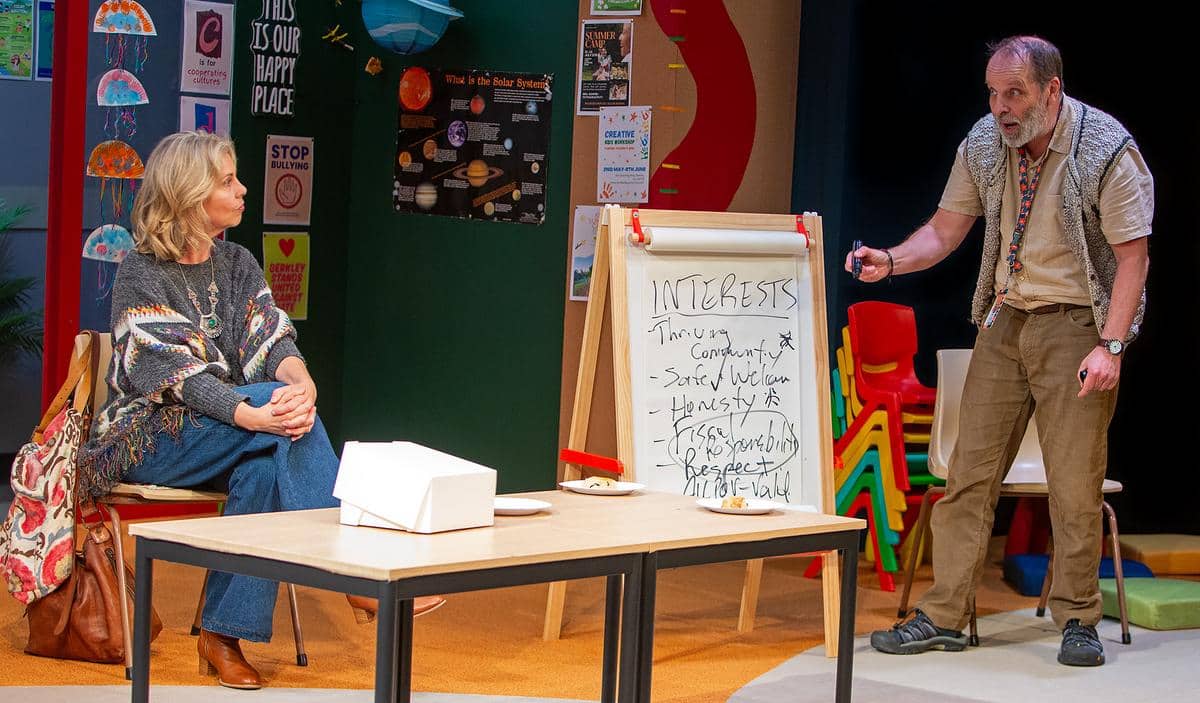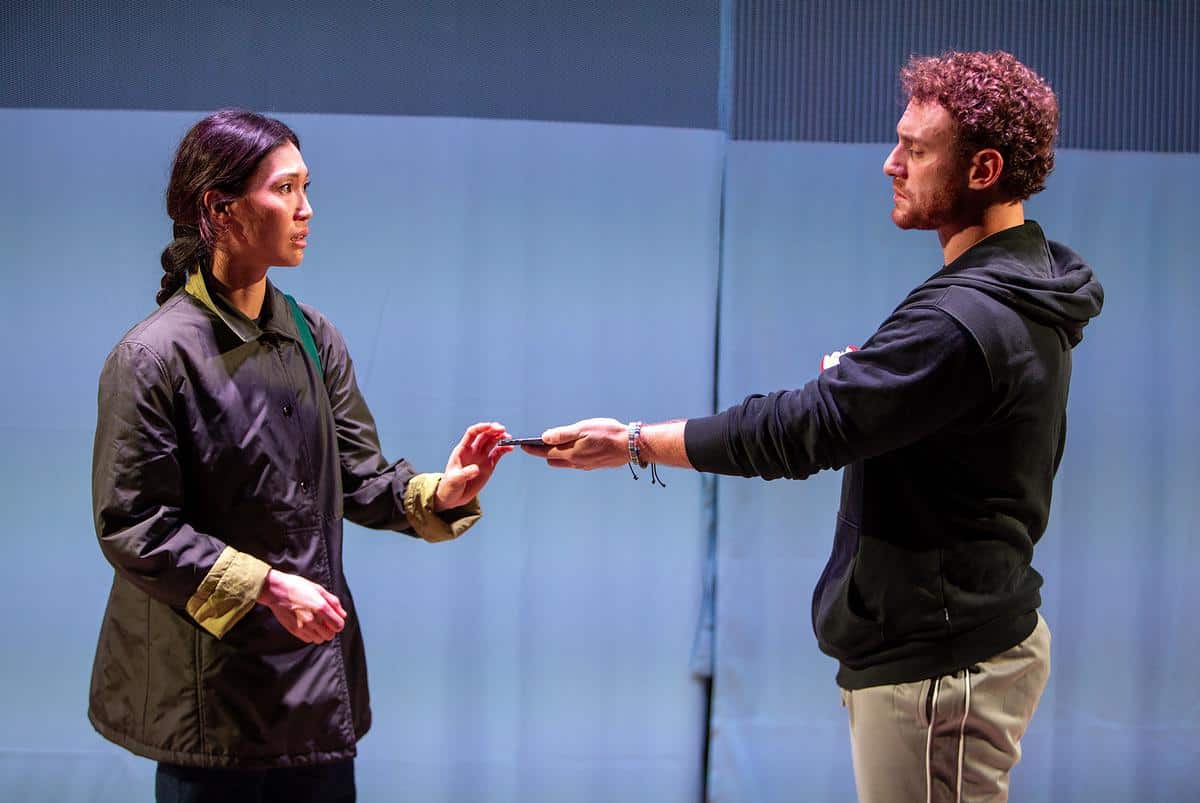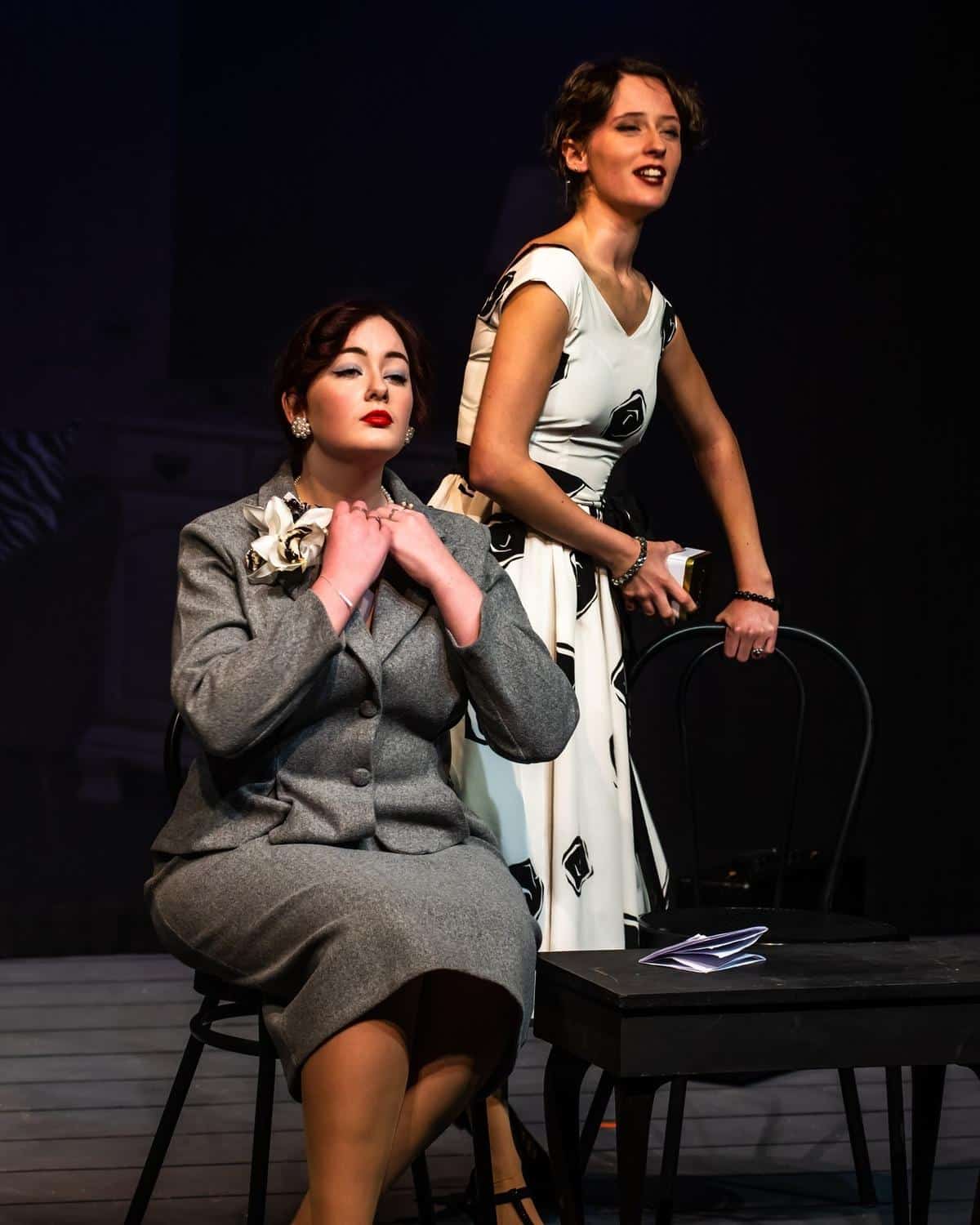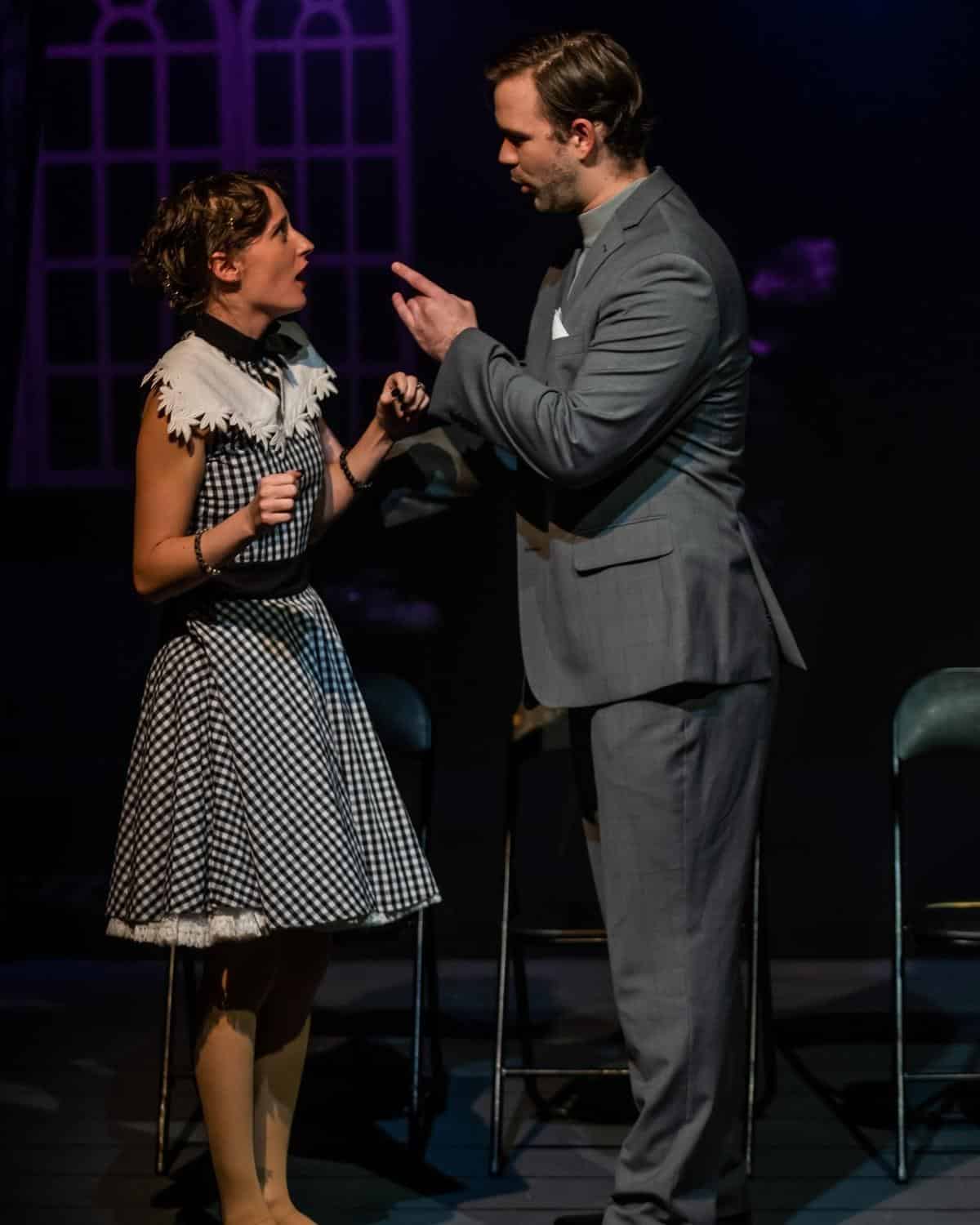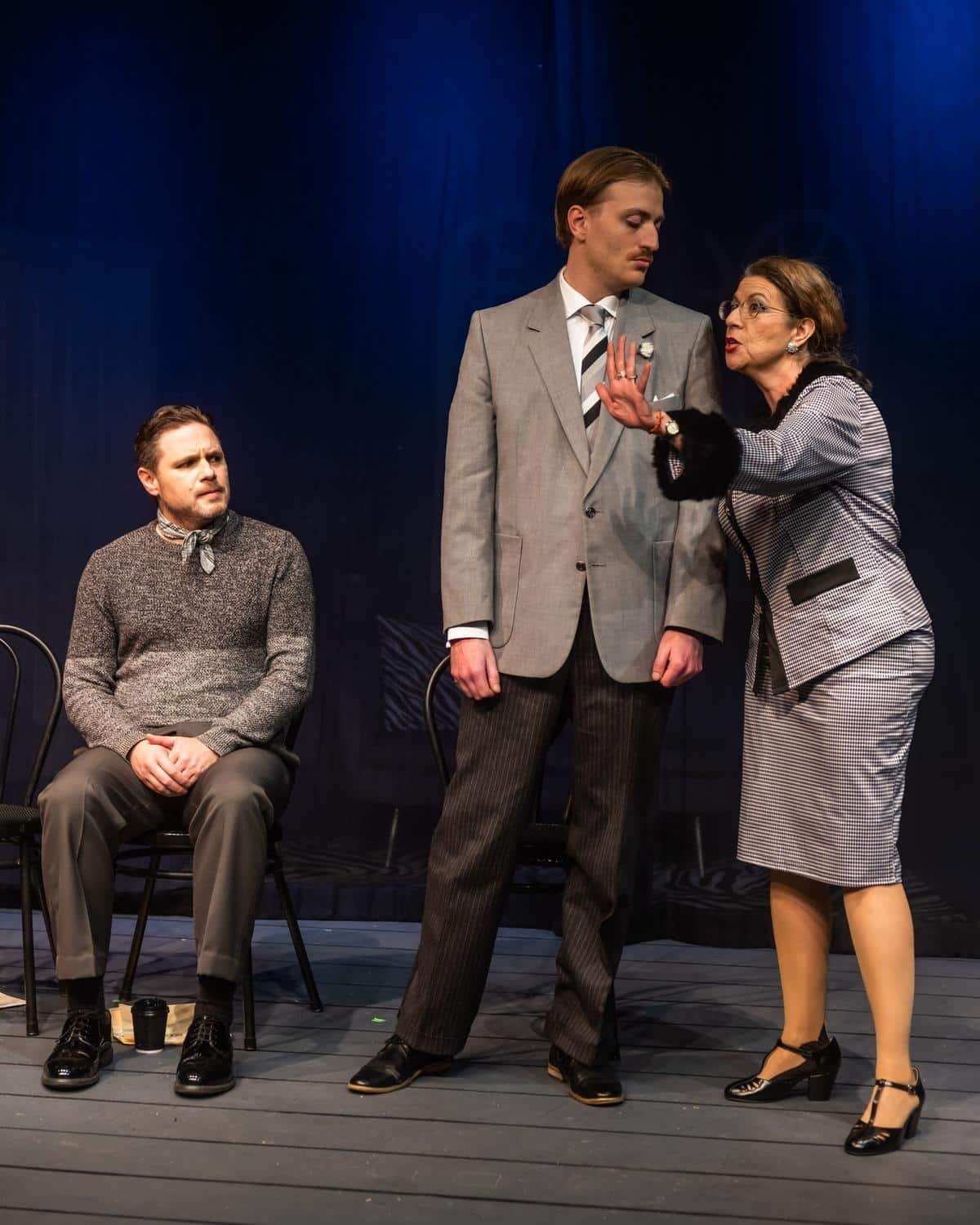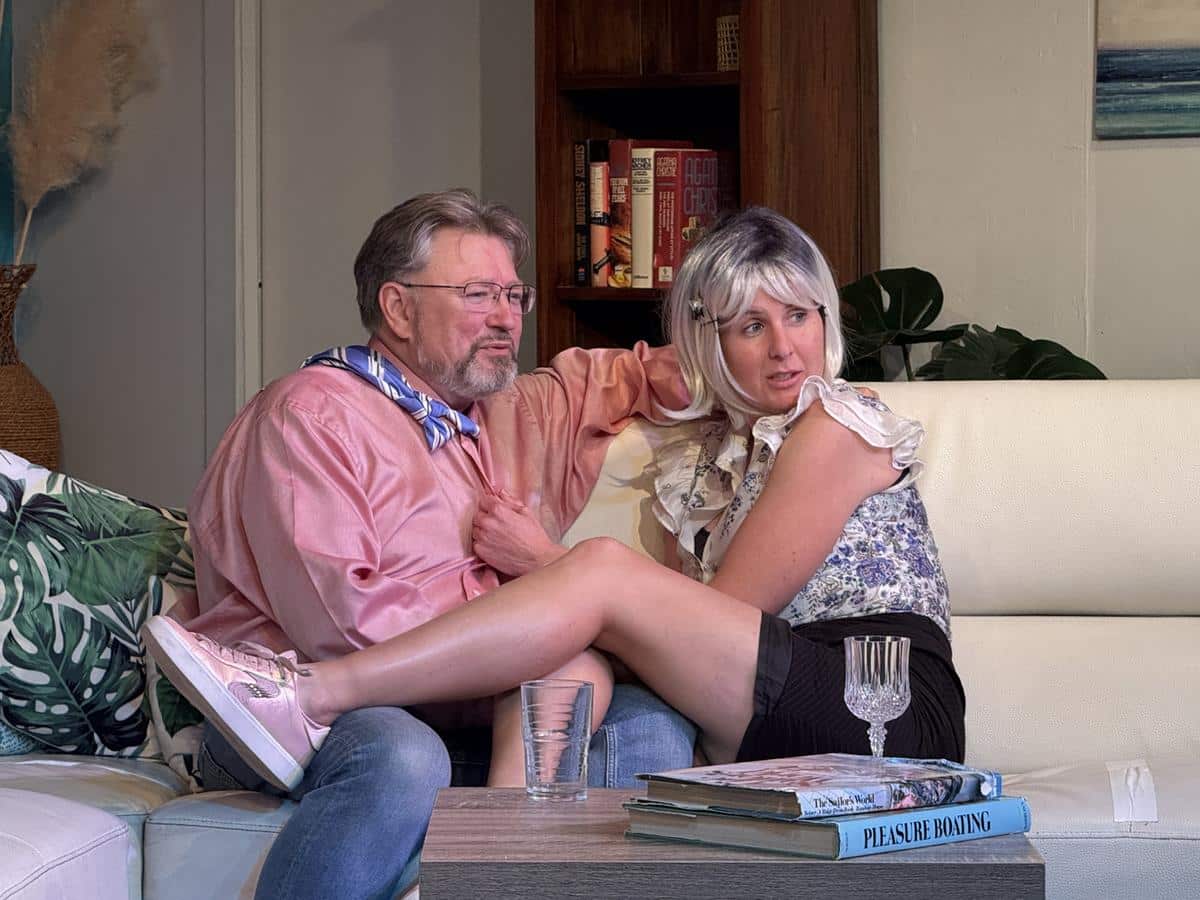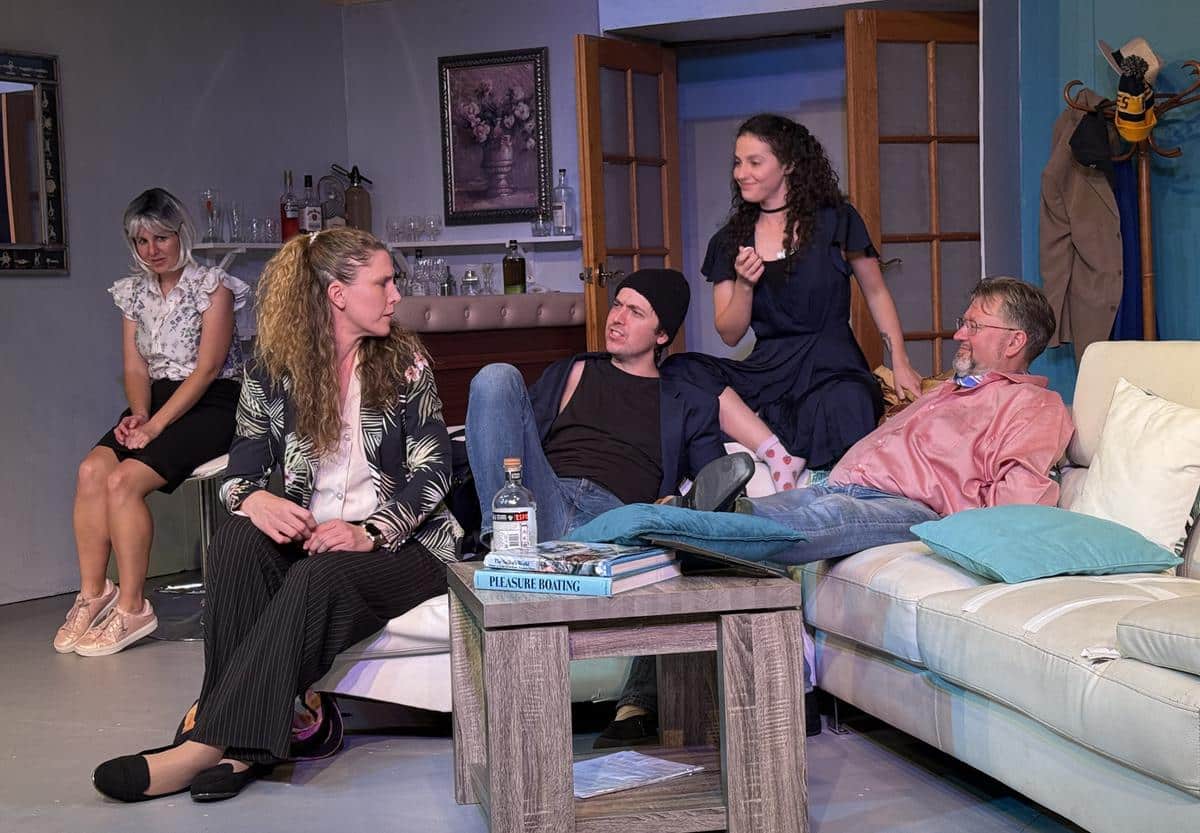The curtain has officially opened for the State Theatre Company South Australia and Sydney Theatre Company’s ‘The Dictionary of Lost Words’ at Wollongong’s Illawarra Performing Arts Centre. Presented by Merrigong Theatre Company, Verity Laughton’s adaptation of the New York Times bestselling novel by Pip Williams opened its two-week run with a spectacular masterclass in storytelling.
From the moment you walk into the theatre, the set is captivating and immediately draws you into the Scriptorium, which is arguably a character in itself. As a book lover myself, I was absolutely taken with the hundreds of shelves and the stacks of old books and papers adorning them. You can practically smell the old books from your seat.
The use of live effects through lighting and the projector really changes the way the stage can be used and perceived. Having cast members seamlessly changing the location and years, as well as the symbolism of moving water and dirt being poured over the projection was mesmerising and effective when it came to some of the more emotional moments. The split-level stage and hidden doors made the space so much bigger, assisting in transporting viewers to Esme’s top secret hiding spots and locations that had the most impact on her growth as a woman and a lover of words.
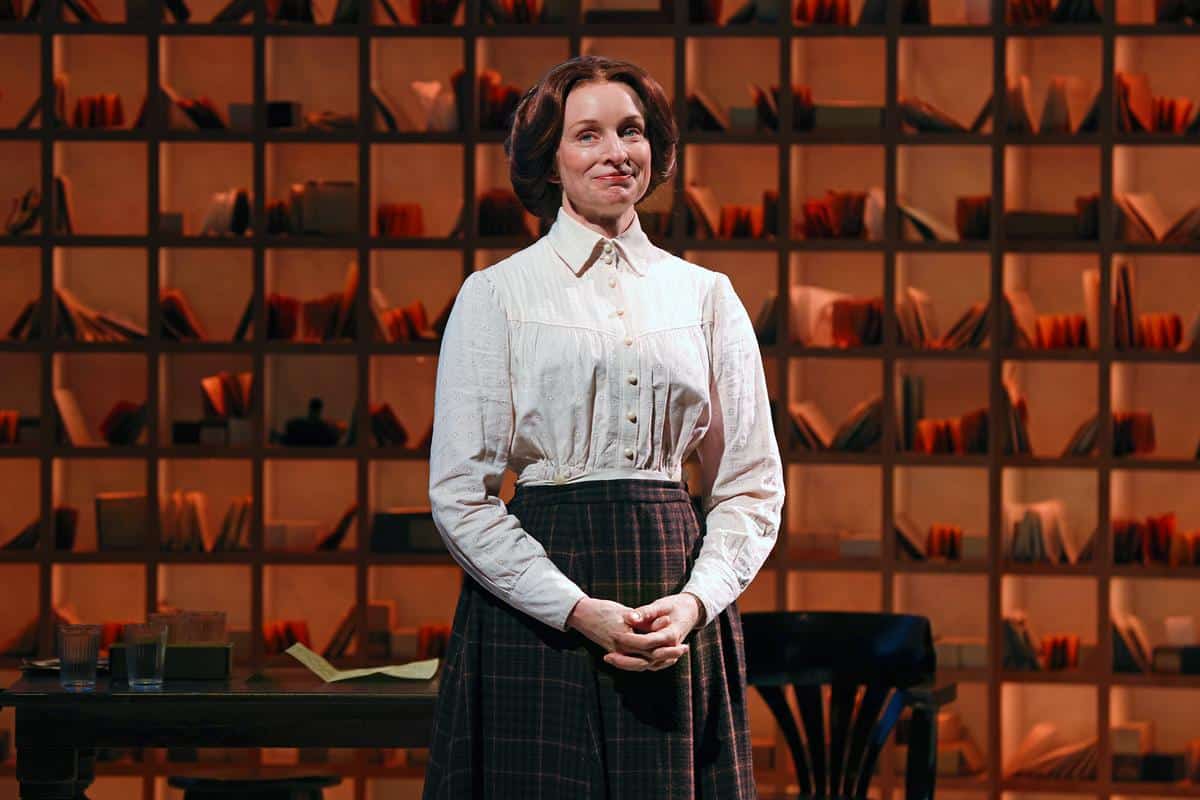
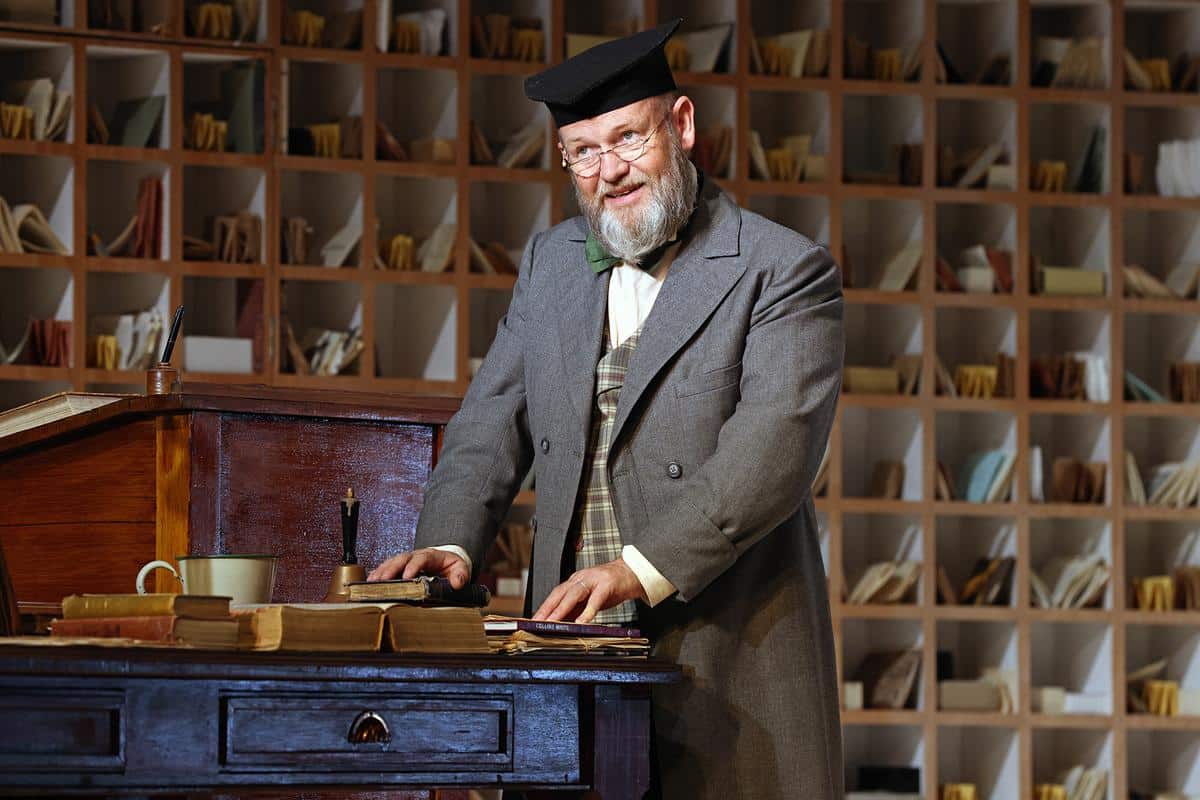
I adored the way each cast member brought their characters to life, with nuances like delectable accents that were so good I couldn’t help but grin every time Brian Meegan’s Sir James Murray rolled his R’s in a delightful Scottish brogue. Transformative acting is a personal favourite, and each character had such life breathed into them with vivacity and evolved as the years passed in an authentic and effortless manner. All cast members are commended on their commitment to everything they touched. The hilarity of the Flower shop vendor who uttered not a single word and yet, managed to convey everything with a single glance absolutely stole those scenes.
Shannen Alyce Quan and Angela Nica Sullen who play Esme Nicoll and Tilda Taylor, respectively, were absolutely electric. Quan’s ability to play a precocious four-year-old who, through the years turned into a world-weary, borderline cynical woman was nothing short of incredible. Not only did they, as Esme, rescue those lost words over time, but they preserved a beautiful piece of historical fiction and gifted a contagious delight for knowledge and eternity to the audience. Sullen’s spirit as Tilda is a commanding presence throughout the performance. Her vibrancy and commitment to the suffrage movement, as well as Sullen’s portrayal of her other characters added such depth to the show.
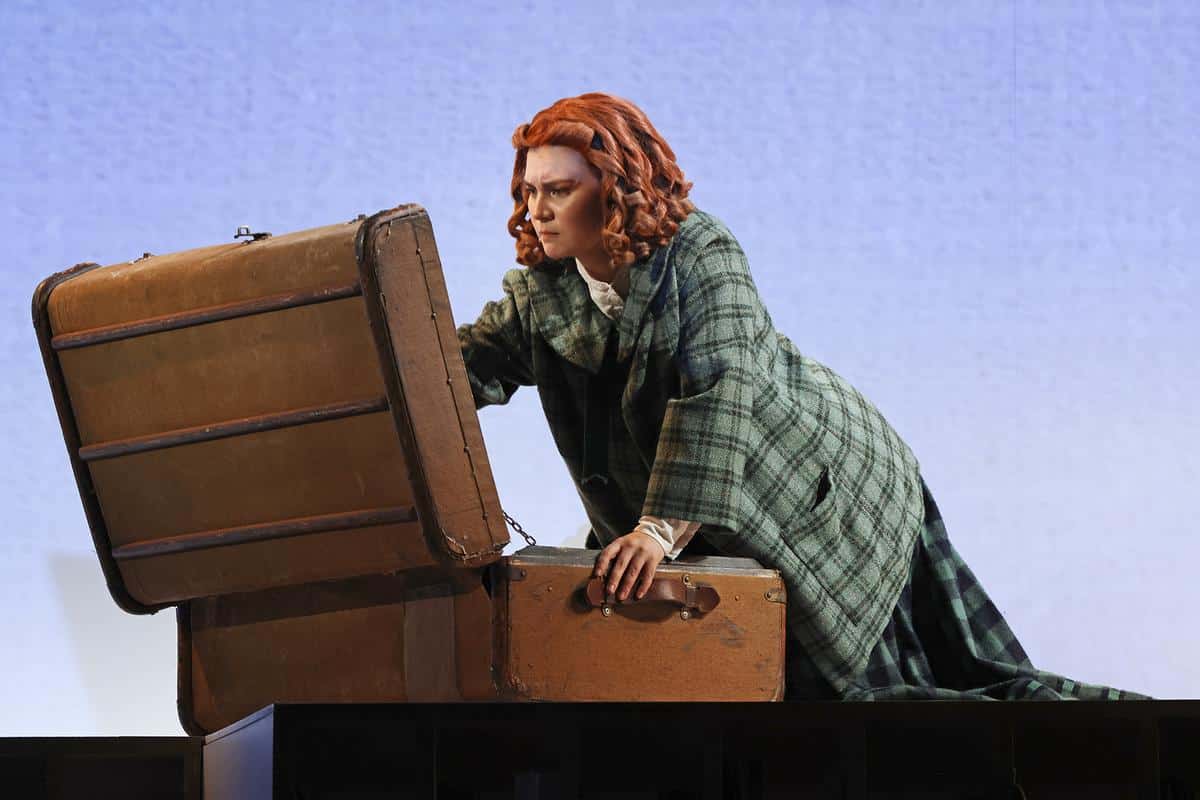
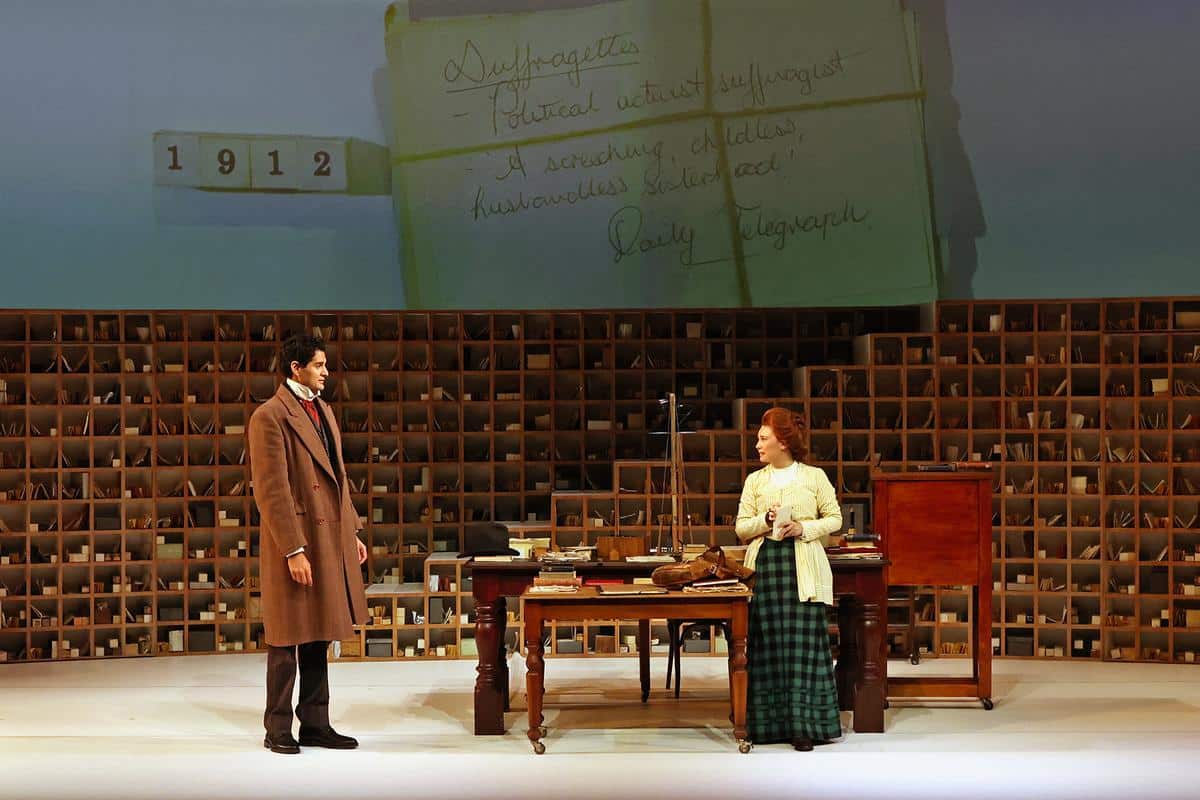
The decision to recount Esme’s most treasured secret with absolutely no dialogue was brilliant. Choosing instead to use music and roving characters with spotlights to signal each part of her story was incredibly moving and I could not look away. You could feel the emotion in the room and each actor held themselves with such raw feeling that was completely inescapable. A massive round of applause to the cast, and the entire team of creatives behind this performance.
Despite the almost three hour run-time, ‘The Dictionary of Lost Words’ is incredibly enriching, and I’d highly recommend it for anyone who loves history, books or a good night out at the theatre. Make sure to grab yourself a ticket before it closes on the 7th of June at the IPAC! Jump on to the Merrigong Theatre website to book now!
To book tickets to The Dictionary of Lost Words, please visit https://merrigong.com.au/shows/the-dictionary-of-lost-words/.
Photographer: Prudence Upton

